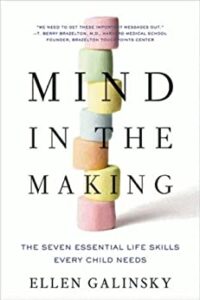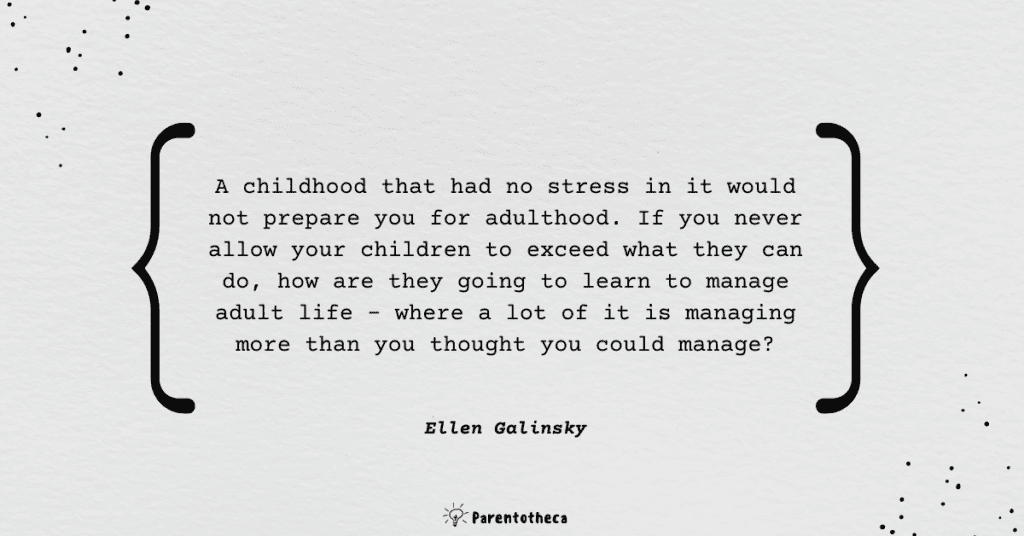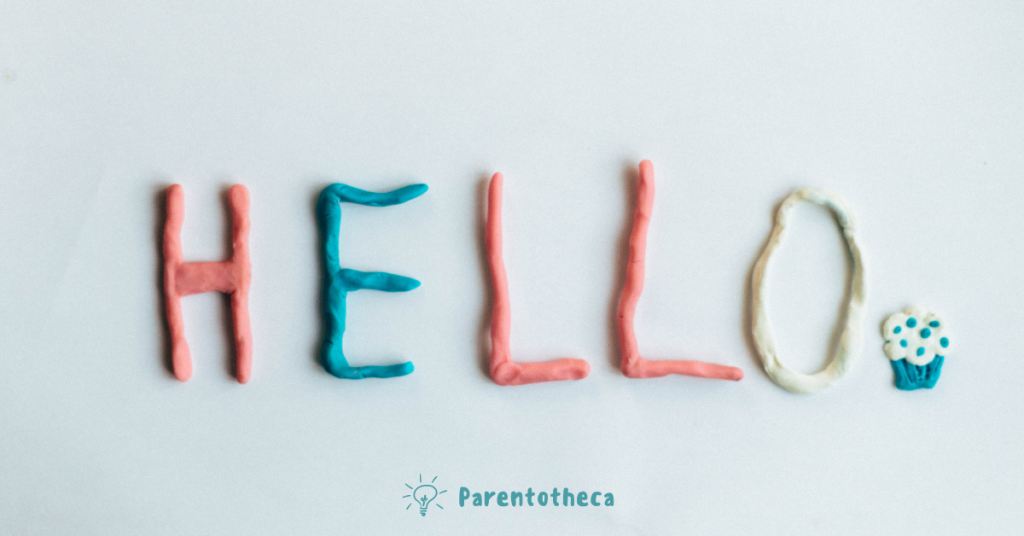 Mind in the Making – Book Summary
Mind in the Making – Book Summary
The Seven Essential Life Skills Every Child Needs
Ellen Galinsky
MarinerBks; 1st edition (1 May 2010)
About the author
Ellen Galinsky is the chief science officer at the Bezos Family Foundation, and also the President of Families and Work Institute. She’s conducted research on child-care, parent-professional relationship, parental development, work-family issues and youth voice. Ellen is the author of the best-selling Mind in the Making, more than 100 books/reports and 300 articles. Other highlights include serving as a parent expert in the Mister Rogers Talks to Parents TV series; as child care expert on Dr. T. Berry Brazelton’s TV series What Every Baby Knows; being the elected President of the National Association for the Education of Young Children (NAEYC); and being elected to the National Academy of Human Resources. In 2018. the Work and Family Researchers Network established the ongoing Ellen Galinsky Generative Researcher Award. She holds a Master of Science degree in child development and education from Bank Street College of Education and a Bachelor of Arts degree in child study from Vassar College. A popular keynote speaker, she has been a presenter at five White House Conferences, including the White House Conference on Teenagers in 2000. She has been featured regularly in the media, including appearances on Good Morning America, the Today Show, and The Oprah Winfrey Show.
About the book:
“There is much in this research on children and learning that is inspiring and insightful. And there is much that is very practical. It shows us just how capable our children are, and it helps teach us how to build on these capacities. There are everyday simple things that you can do – whether you are getting your kids ready for school, dealing with a battle between them, taking them to the market, or just having a conversation. My purpose in writing Mind in the Making is to provide you with tools that are everyday, easy, and fun that you can use to promote these essential life skills. And my larger purpose is to enlist you in what has become a mission for me – to help children learn for life, and live to learn!”
If you are looking for a book that summarises the main research findings in child development and neuroscience and gives you practical suggestions on how to implement all this wisdom in your life, this book is for you. It’s all about how simple changes in interaction with children can help them build the essential life skills that last a lifetime. All based on decades of research. And free.
Ellen Galinsky is probably one of the most eminent child psychologists of our time. She has spent her entire career studying early childhood development and helping children (and families) succeed. And in Mind in the Making, she brings up research of more than 100 scientists and shares strategies for parents on raising children to be well-rounded and achieve their full potential, helping them learn to take on life’s challenges, communicate well with others, and remain committed to learning. These life skills, among four others, prepare children for the pressures of modern life and help them succeed in life.
I would also recommend checking out the additional resources on the Mind in the Making website – it’s a great parenting resource where you can get plenty of ideas on how to help your child develop life skills at every development stage. Galinsky, with the team, also created the Vroom app that helps parents boost their child’s learning during everyday moments (based on research) – check it out.
As you can imagine, the book is packed with great ideas. In these notes, we’ll share our favourite ones, so definitely grab the book for more. Let’s dive in.
Key insights:
The seven essential life skills
“Life today can be all of these things – complex, distracting, fast moving, 24-7, and stressful. It is also joyful and full of exciting possibilities. We know that if it is this way for us, it is only going to be more so for our children. We all want the best for our children, but how do we help them not only survive but thrive, today and in the future?
It is clear that there is information children need to learn – facts, figures, concepts, insights, and understandings. But we have neglected something that is equally essential – children need life skills. […]
There are three essential points about these life skills:
These skills are not only important for children; we as adults need them just as much as children do. And, in fact, we have to practice them ourselves to promote them in our children. That’s why I call them life skills.
We don’t need expensive programs, materials, or equipment to promote these skills. We can promote them in everyday ways through the everyday fun things we do with children.
It is never too late to help children learn these life skills, no matter what their ages.”
Want your children to thrive in life? Teach them these seven essential life skills:
- Focus and control: One of the most critical skills for success. “Focus and control involve many executive functions of the brain, such as paying attention, remembering the rules, and inhibiting one’s initial response to achieve a large goal.” This skill is especially important in our modern, full of distractions world (more on that later).
- Perspective taking: This skill goes beyond empathy and involves figuring out what others think and feel. “It requires inhibitory control, or inhibiting our own thoughts and feelings to consider the perspectives of others; cognitive flexibility to see a situation in different ways; and reflection, or the ability to consider someone else’s thinking alongside our own.” A super useful skill that helps to resolve conflicts. A warm and trusting relationship is key to learning perspective taking.
- Communication: This skill is not only about understanding a language but mostly about “reflecting upon the goal of what we want to communicate and inhibiting our point of view so that we can understand the viewpoints of others.” That skill helps a lot in both personal and work life. Moreover, most employers highlighted that the ability to communicate well is one of the most crucial for them.
- Making connections: this skill underlies an understanding of all the subjects children study in school, and it is also a crucial skill for creativity. “It calls on executive functions of the brain, including working memory, inhibitory control, and cognitive flexibility.” Michael Gelb highlighted it as one of the seven principles of DaVinci’s genius in his amazing book How to Think Like Leonardo Da Vinci.
- Critical thinking: “At its core, critical thinking is the ongoing search for valid and reliable knowledge to guide beliefs, decisions, and actions.” Probably, one of the most crucial skills for success in life in our highly competitive world.
- Taking on challenges: in essence, this skill is about developing a growth mindset.
- Self-directed, engaged learning: this skill helps us realize our potential and grow.
What is best, you don’t need to attend special classes to learn these skills and teach them to your children. Every interaction offers a great opportunity to promote these skills, whether your child is a baby, toddler, or teenager.
Galinsky adds an important caveat: before we teach our children executive skills, we must learn them ourselves. And guess what? It’s a win-win situation. Always start with yourself and lead by example.
However, it’s worth mentioning that executive functions are very fragile – their main enemies are stress and sleep deprivation. That’s the foundation. On this topic, we highly recommend you to check out Stuart Shanker’s great book Help Your Child Deal with Stress – and Thrive (here you can read our notes).
Focus and self-control…may be as important as I.Q.!
“If you look at what predicts how well children will do later in school, more and more evidence is showing that executive functions – working memory and inhibition – actually predict success better than I.Q. tests.”
Galinsky argues that focus and self-control are central to the rest of the essential life skills she covers in the book. Why? Because there is a vast body of research proving that attention skills are crucial not only for academic success but also for success later in life.
Also, when you think of it, we live in times when companies are spending billions to crack our attention. Distractions are everywhere. And in all that information noise, it’s becoming more and more challenging to focus on what is really important to us. So we should better start practising focus and self-control skills from early childhood.
Basically, this skill has four main components: focus (ability to position attention in the right direction to achieve what we want and the ability to concentrate), cognitive flexibility (ability to flexibly change perspectives or the focus of attention, and flexibly adjust to changes demands or priorities), working memory (“holding information in your mind while mentally working with it or updating it”), and inhibitory control (“the ability to resist a strong inclination to do one thing and instead do what is more appropriate”, that’s about the ability to delay gratification).
In the book, Galinsky shares tons of ideas on how to help children learn the focus and self-control skill, here are just a few of them for inspiration (grab the book for more – it’s full of ideas):
- Help your child learn how to bring himself under control. Observe in order to understand what calms your child down. I found Mona Delahook’s guidance and worksheet in Beyond Behaviours really useful for this (check out our notes);
- Play games: (1) that require children to pay attention – e.g. “I spy” (our children LOVE this game), Puzzles, Musical chairs, red light/green light, bell game; (2) that have rules; (3) where children can’t go on automatic pilot (peg taping game, stroop-like exercises (e.g. red written in green and green written in red – ask to read the colour), “Simon says, do the opposite”);
- Read stories in a way that encourages them to listen (and in general active reading with your child is one of the most powerful strategies for boosting pretty much any of the life skills);
- Have children make plans, follow the plans and then discuss what they accomplished.
And, of course, one of the most important tips is to make sure your child is well-rested and has breaks (and do this yourself as well to lead by example).
Problem-resolving technique
Problems and dilemmas are inevitable in life. And at the same time, they offer excellent opportunities to teach children the whole variety of skills essential for thriving in life: problem-solving, perspective taking, and critical thinking.
In the book, Galinsky shares her problem- (or as she also calls it “dilemma-”) solving technique on multiple occasions:
- Identify the dilemma, problem, or issue,
- Determine the goal,
- Come up with alternative solutions,
- Consider how these alternative solutions might work,
- Select a solution to try,
- Evaluate the outcome, and if the solution isn’t working, try something else.
That also reminds of the five steps of problem-solving and social skills from Martin Seligman’s great book The Optimistic Child (check out our notes):
- Slowing down (teaching a child to stop himself from acting impulsively: distinguishing “hot” and “cold” thoughts)
- Perspective taking (understanding what the other person is thinking or why he behaved the way he did)
- Goal setting (what would you like to have happened? Set a goal and list the things you could do to reach that goal)
- Choosing a path (deciding which path offers the best solution to the problem, so you can reach your goal – outlining all the pluses, minuses and long-term consequences of each path)
- How did it go? (check if it worked – if the solution didn’t work, try another one)
Works with any kind of problem ☺
Help your child develop artistically
“There is a growing evidence that learning of the arts – whether it be music, dance, drama, painting – has a positive impact on cognitive life.”
© Michael Gazzaniga
Yes! That’s something that Sir Ken Robinson discussed a lot in his work (check out our notes on his fantastic books Creative Schools and You, Your Child, and School), among with many other imminent educators (e.g. check out our notes on Ulcca Joshi Hansen’s thought-provoking book The Future of Smart).
Why is it so? Firstly, because involvement in arts activities improves children’s focus and attention, and secondly, it increases motivation.
In the book, Galinsky also shares interesting studies, demonstrating that practice of music correlates with skills in geometry and reading skills, and training in acting improves memory and social skills.
P.S.: check out our notes on How to Think Like Leonardo Da Vinci by Michael Gelb, where he unwraps DaVinci’s genius and demonstrates the benefits of holistic brain development.
On parental growth
“My own study of parental development has shown that we – as parents – grow and change when we have an expectation of ourselves, of our children, of the world that doesn’t come true, that doesn’t fit with reality (such as “I am never going to yell at my kids – I am always going to be patient and kind”). Then either we stay stuck and get upset or angry or we grow – by changing our behaviour to live up to our expectations or by creating more realistic expectations. So in children and adults alike, a clash between what we expect and what actually happens can be a trigger for curiosity and learning.”
Love this perspective. Whenever our child triggers some negative emotions in us, it’s because our expectations are unfulfilled. And these unfulfilled expectations present us with an opportunity to grow. But to grow, we need to approach our expectations consciously.
So if you are feeling upset about your child, you can dig deeper to understand what you are expecting – of your child as well as of yourself – and whether or not your expectations are realistic. If they are realistic, Galinsky says, try to live up to them. If not, try to find expectations that are real.
Question for you – which of your expectations do not fit the reality? How can you be more conscious about what you expect from yourself and your child and use it as a growth tool?
P.S.: this idea resonated greatly with Dr Shefali’s wisdom in The Conscious Parent – check out our notes for more.
Encourage your child to have “lemonade stands”
“Lemonade stands have become my metaphor for something that children care a lot about. Every child needs lemonade stands throughout childhood. Caring strongly about interests beyond oneself engenders true focus.”
Throughout the book, Galinsky brings up “lemonade stands” a lot. She sees this as a great way to practice the essential life skills (pretty much all of them).
It also resonates with Willam Daimon’s work on developing purpose in life. In his insightful book The Path to Purpose (check out the notes), he highlights that supporting children in discovering their interests and consequently in developing their purpose in life is absolutely crucial for their well-being in the long run.
Question for you – what is your child’s “lemonade stand”? If you are not sure, how can you help them find one?
P.S.: If you feel inspired and want to help your child develop a passion, you can also check out our article 9 Research-Backed Tips on How Parents Can Help Children Find a Purpose in Life.
Factors that matter
“Obviously, the child who balks at or worries about new experiences is going to react to going to new places differently than one eager for adventure. That kind of uniqueness is called temperament. As parents, we instinctively understand temperament. We know that each of our children has been unique from the moment of birth on, that what works with one doesn’t necessarily work with another, and that the way we parent each child – including twins – differs.”
Over the last few decades, researchers have taken a deep interest in temperament, trying to find an answer to the nature and nurture dilemma. In the book, Galinsky shares Nathan Fox’s study, where together with his colleagues, he presented four-month-olds with new sounds and sights and then videotaped and coded their behaviour to measure their reactivity (physical response and emotions). Scientists have been particularly interested in children who showed signs of stress. Over time they’ve studied 153 out of 433 children screened to find the biological and brain underpinnings of inhibited behaviour.
Long story short, the scientists made an important discovery: they found genes that may underlie children’s tendency to be fearful, anxious, and stressed when faced with novel experiences. So genes do matter, of course. But. They are not your destiny. You may be born with a certain set of genes, but they only give you the disposition to become shy. To develop a shy personality, you need certain experiences over time. Guess what aspect of the environment makes a difference? Parenting style!
“If children who get upset and stressed by new experiences have parents who don’t help them learn to regulate their emotions, they’re likely to become more fearful and anxious as pre-schoolers and as school-age children.”
The main conclusion – if you don’t want to turn your child’s anxiety genes on, don’t be an alarmist parent (who sees danger everywhere), and stay away from being intrusive or overprotective. In short, don’t be a helicopter parent (which reminds me of Julie Lythcott-Haims and her great book How to Raise an Adult – check out our notes).
Action steps for you:
- Think about how you can incorporate life skills practising into your day-to-day interaction with your children. Consider creating traditions (e.g. reading before bed, playing board games every Saturday, having engaging dinner conversations, etc.); use conflicts as learning opportunities (teach them the problem-solving technique); encourage curiosity; teach self-reg techniques, etc.
- Promote your children’s “lemonade stands” – encourage them to pursue their interests and support them on the way (check out our article for more ideas);
- Play with your children – board games, word games, cards, sorting games, computer games that require focus and attention, and encourage pretend play. Note: always participate as a “guide”, not “boss”.
Quotes from the book:









